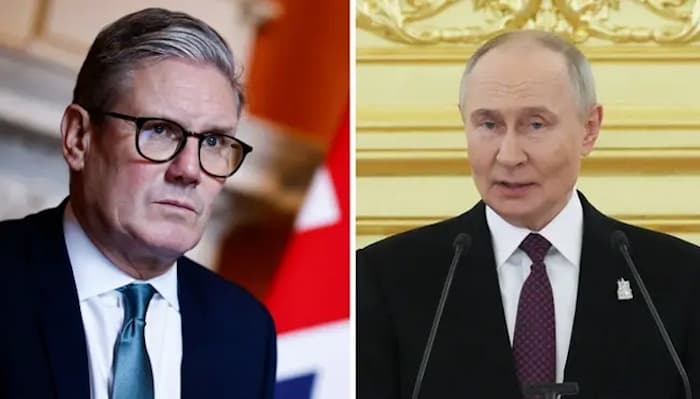On Tuesday, June 17, 2025, the United Kingdom, in coordination with its G7 allies, is set to unveil a new package of sanctions targeting Russia’s economic resources, particularly its energy revenues, to intensify pressure on Moscow amid its ongoing invasion of Ukraine. British Prime Minister Sir Keir Starmer announced the measures during the G7 summit in Kananaskis, Alberta, Canada, emphasizing their goal to “squeeze Russia’s war machine” and compel President Vladimir Putin to engage in meaningful peace negotiations. The sanctions aim to disrupt the Kremlin’s ability to fund its military operations, which have continued unabated since Russia’s full-scale invasion of Ukraine in February 2022.
The new sanctions package, though not fully detailed by Downing Street, is expected to focus on restricting Russia’s energy exports, a critical source of revenue for its war efforts. Starmer stated that the measures would “reduce the funds Russia is able to pour into their illegal war,” building on the UK’s existing sanctions against over 2,300 individuals, entities, and ships since 2022. The European Commission President Ursula von der Leyen also indicated that the G7 might lower the price cap on Russian oil from $60 to $45 per barrel, a move designed to further erode Moscow’s oil revenues, which have already declined by nearly 80% due to prior G7 and EU sanctions.
The announcement comes against the backdrop of intensified Russian attacks on Ukraine, with Ukrainian officials reporting 14 deaths in Kyiv from overnight drone and missile strikes on June 16, 2025. These assaults underscore the urgency of the G7’s efforts to weaken Russia’s military capacity. Starmer, speaking at the summit, stressed that Russia “doesn’t hold all the cards” and urged G7 partners to demonstrate to Putin that peace is in his interest, particularly as ceasefire talks have stalled.
However, the G7’s unified front faces challenges, notably from the United States under President Donald Trump, who has expressed reluctance to impose additional sanctions. Trump, who left the summit early due to escalating tensions in the Middle East, argued that sanctions “cost the US a lot of money” and suggested he would wait to see if a ceasefire deal could be reached before supporting further measures. His stance, coupled with his controversial call to readmit Russia to the G7 (formerly G8), highlights divisions within the group, with European leaders like Starmer and French President Emmanuel Macron pushing for stronger action.
Starmer’s push for sanctions aligns with broader diplomatic efforts to support Ukraine, including discussions about a “coalition of the willing” to deploy peacekeeping forces to Kyiv if a ceasefire is achieved. Ukrainian President Volodymyr Zelensky, attending the summit, has endorsed a US-backed ceasefire proposal and offered direct talks with Putin, but the Russian leader has shown no willingness to negotiate without significant concessions, such as the cessation of Western military aid to Ukraine. The G7’s sanctions strategy thus serves as both an economic tool and a diplomatic signal to pressure Moscow toward the negotiating table.
The UK’s leadership in this sanctions effort reflects its broader commitment to global security, as articulated by Starmer during the summit. He emphasized the need for Britain to play a leading role in a “new era of defense and security,” citing the ongoing conflicts in Ukraine and the Middle East as critical challenges. Downing Street dismissed suggestions that the lack of specific details about the sanctions package indicates G7 disunity, with a spokesperson noting that discussions were ongoing and that the summit’s outcomes would clarify the measures’ scope.
The sanctions are also part of a broader G7 agenda addressing global instability, including the Israel-Iran conflict, which prompted Trump’s early departure from the summit. European leaders, including Starmer, Macron, and Italian Prime Minister Giorgia Meloni, met on the sidelines to discuss de-escalation strategies for the Middle East, underscoring the interconnected nature of these crises. The G7’s ability to coordinate on Russia sanctions while navigating these other challenges will test its cohesion and influence on the global stage.
The UK’s sanctions package includes 10 new designations and 20 new ship specifications under its Russia sanctions regime, targeting entities and vessels involved in circumventing existing restrictions. These measures build on the UK’s extensive sanctions framework, which has sought to isolate Russia’s economy and degrade its military-industrial complex. Starmer’s announcement reinforces the UK’s position as a key player in the international response to Russia’s aggression, even as it navigates complex dynamics with allies like the US.
The G7 summit, hosted by Canadian Prime Minister Mark Carney, also saw discussions on global trade and economic issues, including a US-UK tariff deal signed by Trump and Starmer to reduce tariffs on British cars imported to the US. This agreement, described by Starmer as a “really important day” for both nations, highlights the multifaceted nature of the summit’s agenda. However, the focus on Russia sanctions remains a priority, with Starmer framing the measures as essential to achieving a durable peace in Ukraine.




